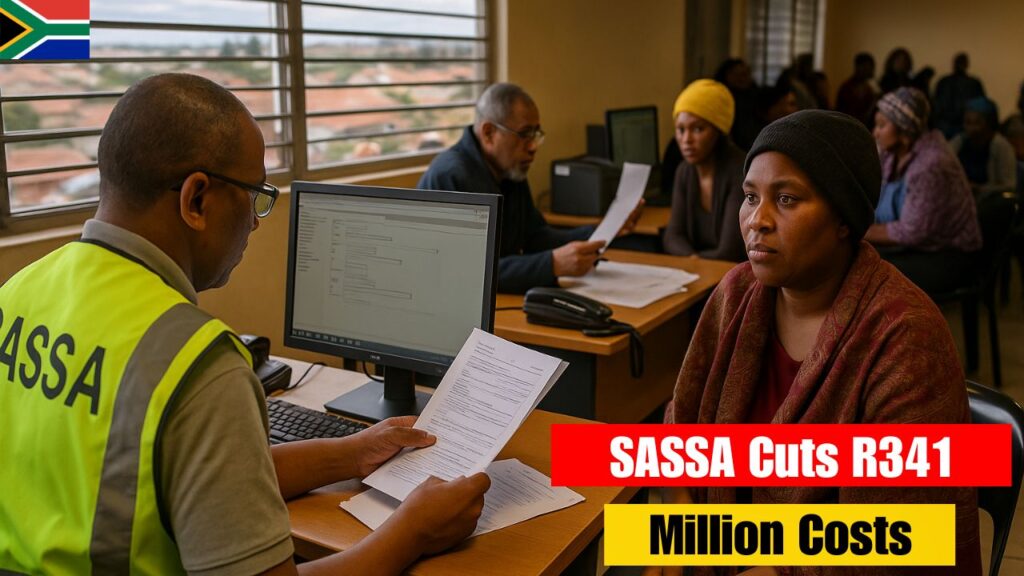SASSA plans to save over R341-million in the upcoming financial year after cancelling approximately 35000 grants discovered during recent reviews.

The agency briefed Parliament on Wednesday alongside the Department of Social Development about their progress in reviewing grants and addressing serious problems in the Social Relief of Distress grant system.
Following an investigation that revealed major security weaknesses in the SRD platform, SASSA improved its security measures and removed fraudulent websites.
The agency now conducts vulnerability assessments every three months. Treasury has increased its monitoring of SASSA’s budget and now requires the agency to perform bank and credit bureau checks more often. New procedures include checking income & assets & verifying information when people apply for grants.
The South African Social Security Agency (SASSA) plans to save over R341 million in the upcoming financial year after cancelling thousands of social grants following recent eligibility checks.
SASSA and the Department of Social Development (DSD) presented an update to Parliament’s portfolio committee on social development on Wednesday. They discussed the progress of grant reviews and the steps being taken to address major weaknesses in the Social Relief of Distress (SRD) grant system. Officials explained that the savings come from improved verification processes and new requirements set by National Treasury. They also mentioned ongoing efforts to fix critical security problems in the SRD application platform.
Earlier this year DSD informed Parliament that Treasury had set stricter rules for SASSA’s budget. These rules include checking people’s income monthly through bank records & government databases. They also require expanded verification processes and regular progress reports.
The DSD received R260-billion for 2025/26 & R271-billion for 2026/27 for social assistance. This comes at a time when almost 45% of the population relies on social grants. Finance Minister Enoch Godongwana recently announced that the SRD grant will continue until March 2027.
SASSA executive manager for grant operations Brenton van Vrede informed MPs that SASSA had met the requirement for twice-yearly bank & credit bureau checks for beneficiaries. However Treasury has now changed these conditions to require checks when people register.
SASSA now has to perform extra income and asset checks on people who apply for grants & those who already receive them. Van Vrede mentioned that the details of this new requirement are still not entirely clear.
He also said that biometric verification for online grant applications should be available by the end of November. After Treasury told SASSA to review grants, around 35,000 grants were either suspended or expired.
Most of these were Child Support Grants and Disability Grants. SASSA expects to save R28.5 million each month from these expired grants. By the end of this financial year the savings should reach R170.7 million and after a full year they will total R341.4 million.
During the first six months of the year SASSA started more than 260,000 reviews. Around 201000 people who receive grants have finished their reviews. Those who have not completed them yet could have their grants suspended. Van Vrede explained that 8,600 people receiving Older Persons and Disability grants had their payment amounts reduced after their income was reviewed.
Improved systems
The committee received information about an investigation into security problems with the SRD online application system. The investigation started after two students from Stellenbosch University found that the platform had serious security weaknesses that allowed cybercriminals to submit fake applications using ID numbers of people who had recently turned 18.
Social Development Minister Nokuzola Tolashe explained that the investigation found several major issues including poor encryption and unauthorized application programming interface access. The investigation also discovered fake websites that looked like the official SASSA platform & problems with beneficiary payments being disrupted.
She stated that the main recommendations included improving authentication measures & fighting against fraudulent websites. The investigation also suggested that SASSA should strengthen its verification processes & payment security while improving overall IT governance.
MPs raised concerns about beneficiaries without cellphones missing review notifications, system downtime at local offices, and cases where outdated government databases lead to incorrect rejections.




